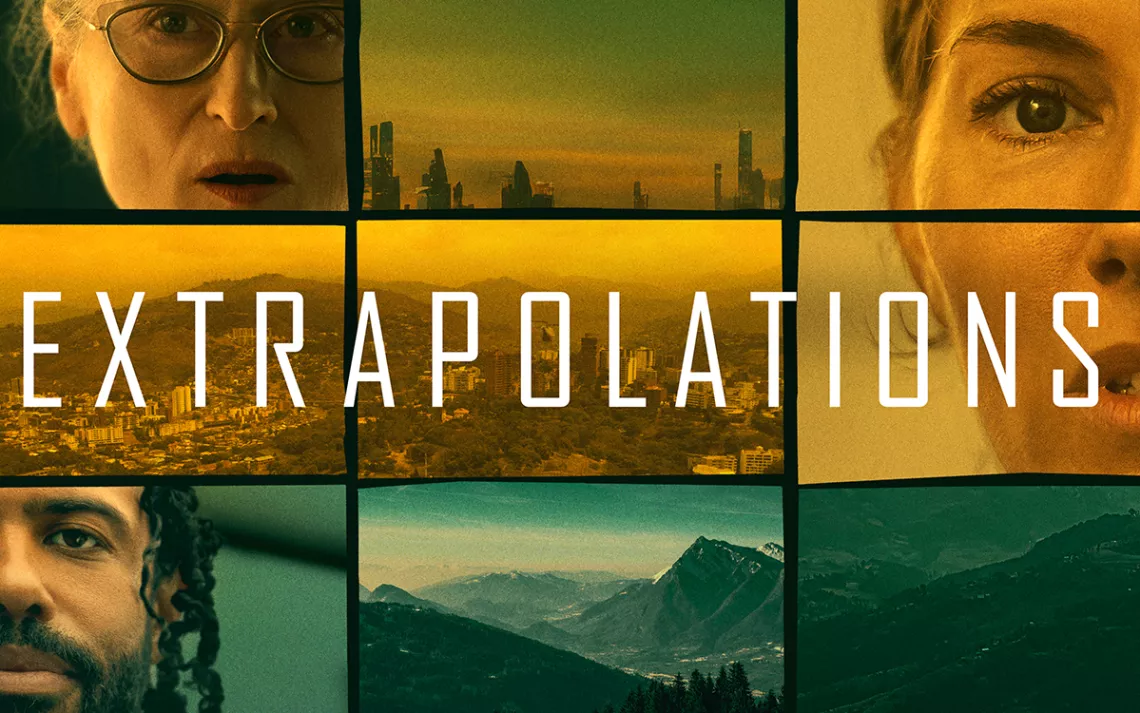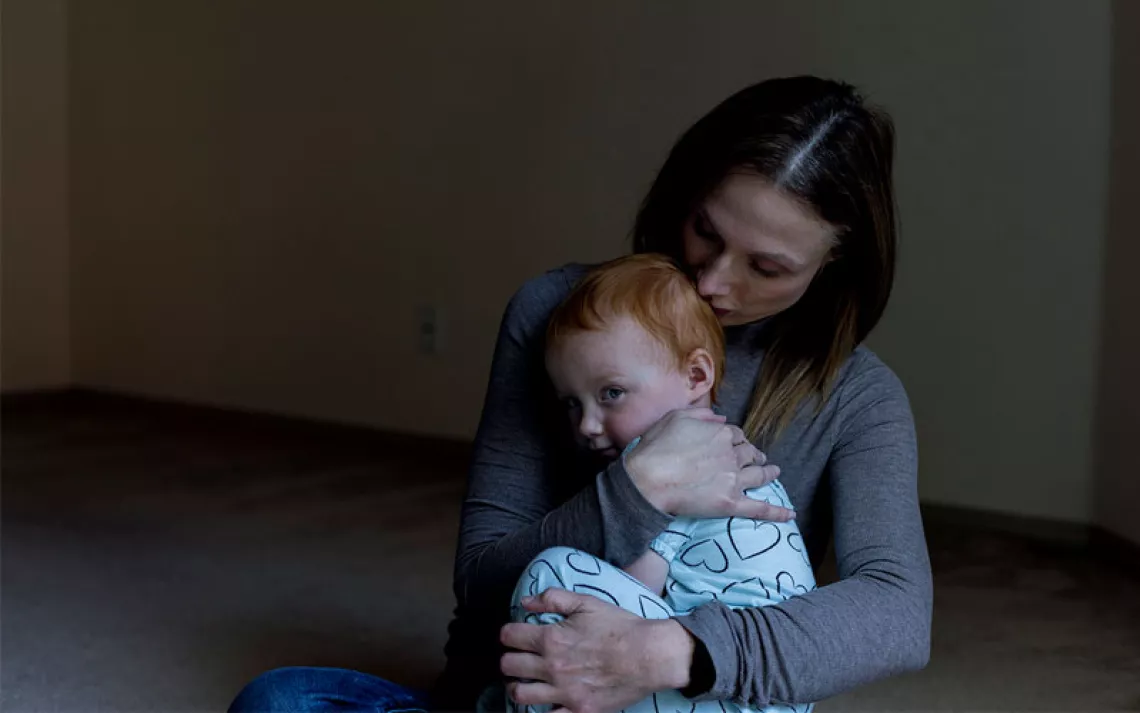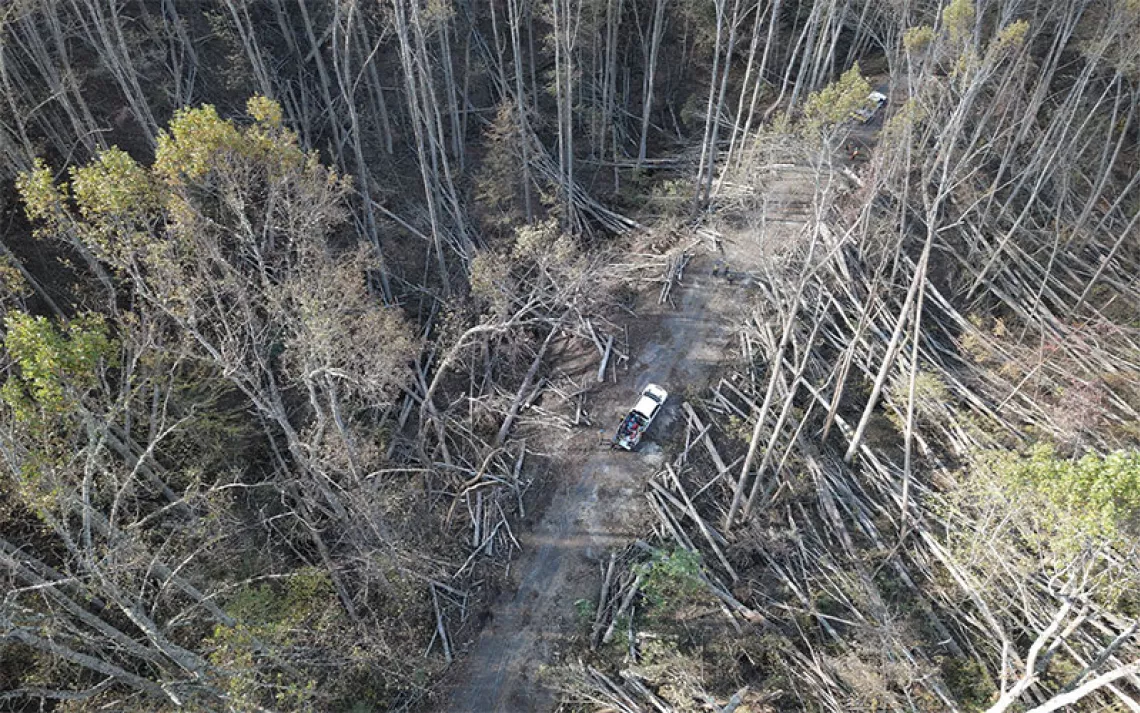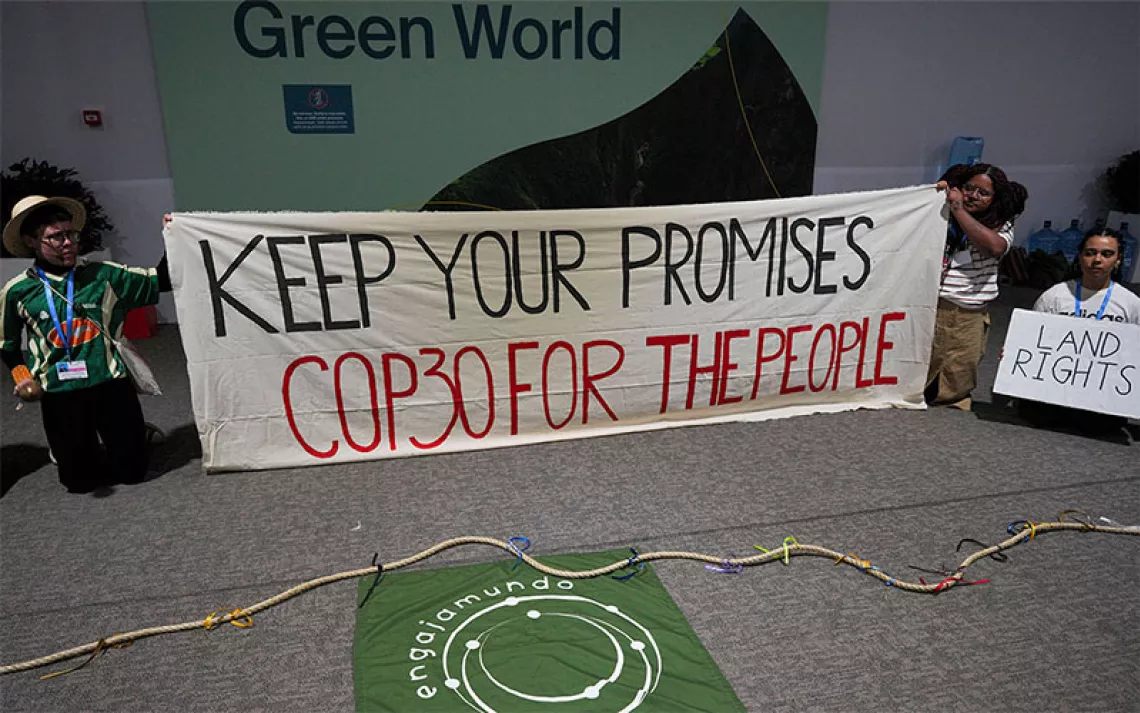Future Imperfect
Apple TV’s new cli-fi series, Extrapolations, envisions a future that feels all too close to the present

The year is 2037. Fires rage across the globe. Activists are protesting government gridlock on climate change as corporate CEOs defend their greed with arguments that a strong economy is worth a couple of more degrees added to the super-heated atmosphere.
If this sounds more familiar than it does far-fetched, that’s the point. Extrapolations, a new Apple TV scripted series about climate change, begins in a recognizable near future. Then, episode by episode and as the years pass, the dial is turned up until the fallout from climate change dramatically alters every aspect of human life on Earth.
Over the course of eight vignettes, viewers travel through time, starting in 2037 and ending in 2070. Like the best science fiction, Extrapolations’ imaginings of ever-intensifying impacts of our warming atmosphere resonate with the audience because they are both visceral and personal. Explored through various characters’ perspectives, the episodes tackle the full spectrum of climate change’s impacts. This is prestige drama as a dire warning.
In the first three of the anthology’s installments, Israel burns, Miami floods, and the whales vanish. Some narratives are self-contained in a single episode, while other storylines span the entire 33-year arc of the series. Plot lines aren’t just relegated to climate chaos. In Extrapolations’ timeline, Texas secedes, cancer is cured, humans land on Mars, and Beyonce’s daughter, Blue Ivy, releases a holiday album. The speculative cultural references are sprinkled throughout with restraint, so they don’t topple the enterprise into Idiocracy territory.
While the unfolding climate disasters are mural-scale, Extrapolations packs an intimate punch by focusing on smaller-bore plots. We follow Ezra, first as a boy who contacts a potentially fatal climate-change-induced condition called “summer heart.” Ezra can’t go outside in the heat for too long or get too excited—otherwise, he dies. In a later episode, an adult Ezra (played by Tahar Rahim) struggles to cope with the cascading effects of his disease.
Each episode is essentially a stand-alone story, but there are connecting threads. Early in the series, Ezra’s story intersects with that of Nick Bilton (played by Game of Thrones’ Kit Harrington), who is a suaver version of our current crop of rocket-launching tech-titans. Bilton serves as the entire series’ big baddie. In the first installment, as millions of people go thirsty, Bilton leverages his patents on water desalination technology to cash in. All the while, he makes statements like, “A man whose house is on fire is incredibly easy to negotiate with.”
Bilton may be a one-man global antagonist, but Extrapolations’ main villain is human greed. In the series premiere, a predatory real estate developer (played by Mathew Rhys) sees nothing but profit in ice-free Arctic seas. “We’ll be smiling in gold-plated coffins designed by Kanye,” he says to his business partner as they scheme construction of their new polar casino. Similarly, species extinction is viewed as just another business opportunity. We are introduced to a Bilton subsidiary that races to lock up animal kingdom intellectual property rights under the mantra of “scarcity equaling value.”
Show creator and writer Scott Z. Burns, who is best known for producing An Inconvenient Truth and for writing screenplays for hit movies like Contagion and the Bourne Ultimatum, said he wanted the series to focus on how human nature is part of the climate predicament. “We can’t change the way our minds work, but we can change how we make governments work,” Burns told Sierra. “There are solutions to climate change—except the very basic problem of our own greed and our inability to share.”
Bringing environmental themes into entertainment, let alone devoting a whole series to climate change, can be difficult to pull off without making the endeavor feel preachy. Sequences like an espionage plotline about a high-tech seed heist and an action sequence of militants embarking on a rogue geo-engineering mission allows Extrapolations to deliver whiz-bang, homework-free entertainment.
“The audience doesn’t give you points if the story you told aligns with their politics,” Burns said. “What you’re asking them for is an hour of their time, and you better give them something entertaining for that hour. That was the obligation.”
Storytellers know that conflict drives narrative. Because of that, movies and TV shows focusing on climate change often use apocalyptic themes. Viewers may be thrilled by cities freezing in a day or mass extinction events, but ultimately, they are left without hope for solving the climate crisis. Extrapolations avoids plunging audiences into nihilism by balancing disaster movie flourishes with family-drama moments of real human kindness and sacrifice.
“We had a chance to say we are not at the end yet,” said show producer Dorothy Fortenberry, whose previous credits include The Handmaid’s Tale. “We are in the middle. What does the middle look like? How do we make it through? That was very compelling to me.”
Both Burns and Fortenberry say they have the material and desire for a second season—which should be welcome news to climate activists eager for more pop culture treatments of the crisis. According to a recent report by the USC Annenberg Norman Lear Center and Good Energy Stories, only 2.8 percent of the 37,453 scripted TV shows and movies released between 2016 and 2020 mentioned climate change. Does this deter creators and studios from pursuing more environment-centric entertainment?
“Adam McCay [writer and director of Don’t Look Up] and I have talked about this,” Burns said. “He said there should be a lot of shows about climate change. We have tons of shows set in hospitals and police departments. We came to understand the Second World War through novels and even cinema in Europe that helped people understand what the hell just happened. We have an obligation to tell those stories about the existential threat we are in now.”
 The Magazine of The Sierra Club
The Magazine of The Sierra Club



